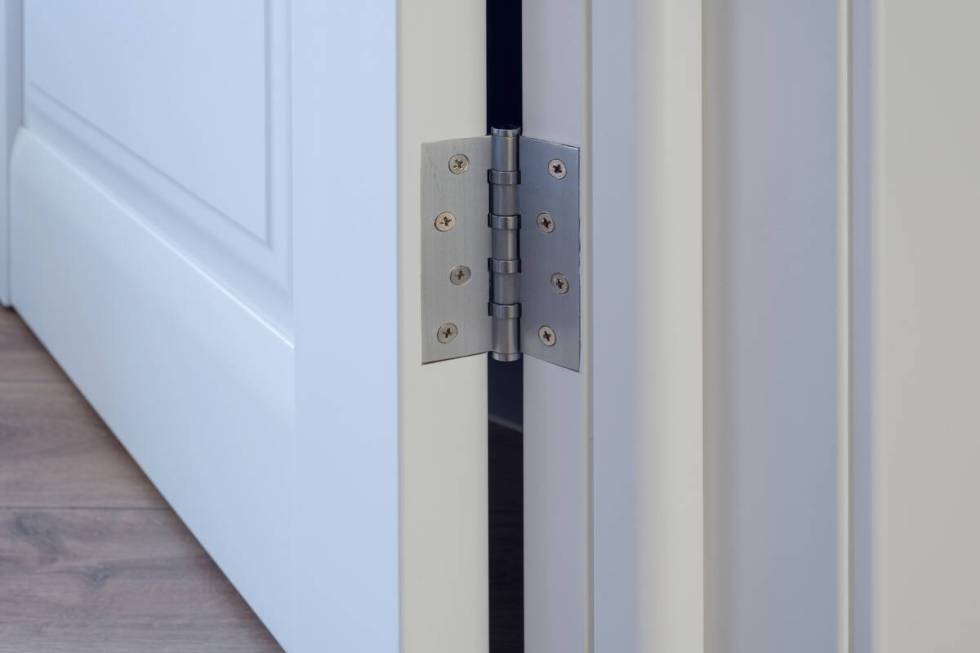Why won’t the door that leads to my garage close anymore?

Q: The heavy door that leads from my house into the garage doesn’t close by itself anymore. What’s wrong with it?
A: You have a hinge problem on your fire door, which is required to have a self-closing mechanism. Although these doors are important, they can also be a pain.
I don’t know how many times I’ve fought with mine while bringing in an armful of items from the car. It’s a game of flinging the door open, racing into the house, then catching the door before it slams and knocks the pictures off of the wall.
When you look at the hinges, notice that the top and bottom hinges are larger than the middle hinge(s). These are the self-closing hinges. Inside these hinges are springs under tension, which pull the door closed after it has been opened. It sounds as if one or both of your hinges are not working.
There are several types of self-closing hinges. One type uses a pin to hold the spring under tension. If you have this type, it may be that the tension pin has broken off and the spring has lost tension.
You’ll need to stick an Allen wrench into the top of the hinge and turn it clockwise. Or, you might try cutting off a nail and inserting it or another small object into the hole, but be forewarned that the tension in the spring may shear off the object.
Another variety of hinge has a ratchet-type mechanism. Simply insert an Allen wrench into the top and turn it clockwise until you hear a click. Keep turning until the proper amount of tension has been achieved.
If you have this type, either the spring or ratchet inside is broken and cannot be repaired. I don’t like these because they just don’t seem to work very well. I’ve bought several brand new and they don’t work right out of the package.
The last type of self-closing hinge isn’t really a replacement hinge at all. It replaces the pin in the hinge. Pop the old pin out of the hinge using a small screwdriver and a hammer. Stick the end of the screwdriver in the bottom of the hinge and tap the pin out.
Replace the pin with the self-closing mechanism and crank up the tension with an Allen wrench. I don’t like this type either; they seem to work only a short time before breaking.
You will have either 3½-inch or 4½-inch hinges. Buy the correct size and replace one hinge at a time. It’s a matter of removing the screws from the old hinge and screwing in the new one. Just make sure you’ve relieved any tension left in the old hinges before removing them or else you may strip the holes out and injure yourself in the process.
If the hole pattern doesn’t match up, mark the correct locations and predrill the holes with a 3/32-inch drill bit. You may also have to chisel out the wood in the corners if you are replacing hinges that have rounded corners with hinges that have square corners.
When you set the tension in the springs, do it gradually. You want just enough tension to close the door. If you crank up the tension too much, the door will slam and your walls will rattle. You will, however, have to use more tension if the weather stripping on the door is thick and dense.
When you’re finished, avoid embarrassment and don’t let the door hit you in the rear end on the way out.
Send questions to licensed contractor Mike Klimek at handymanoflasvegas@msn.com or 4710 W. Dewey Drive, No. 100, Las Vegas, NV 89118. Visit handymanoflasvegas.com.